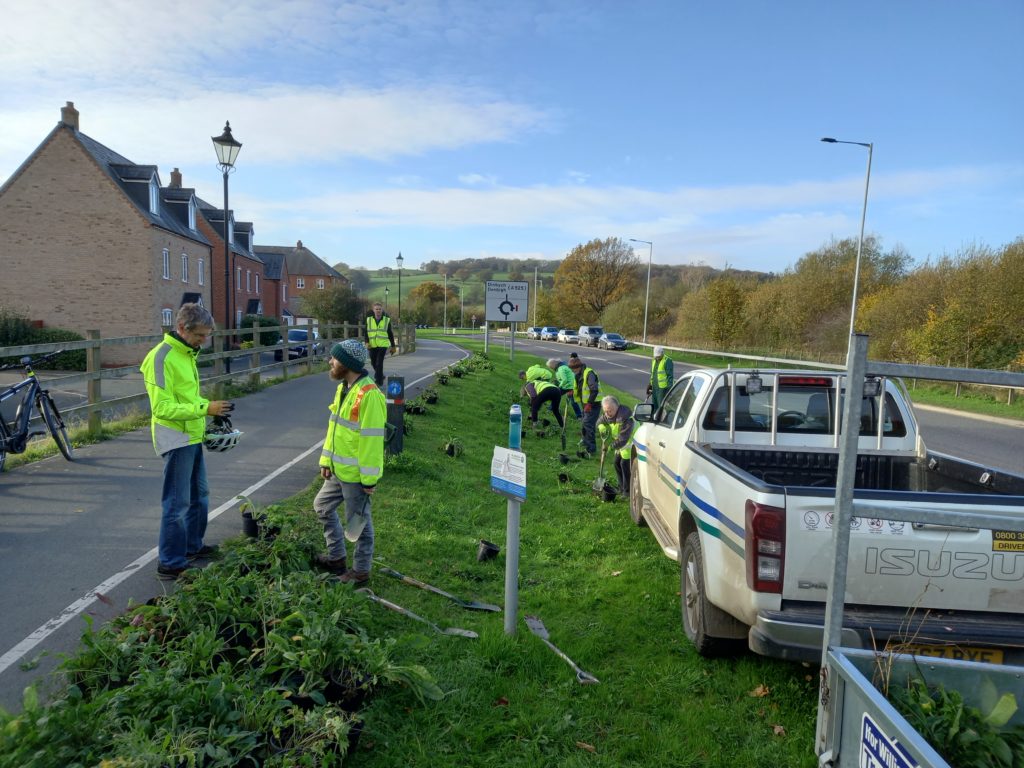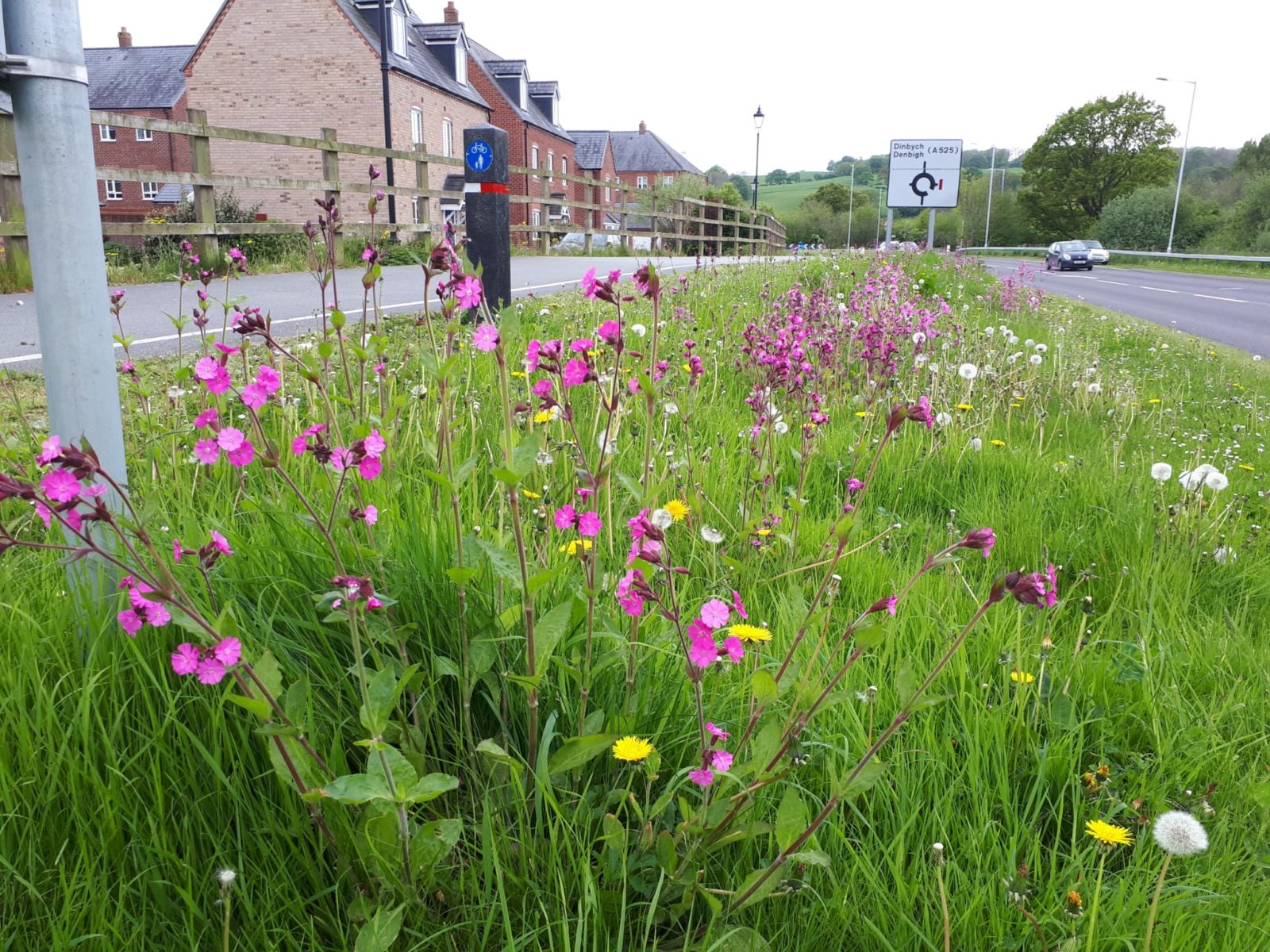Volunteer support has helped a Ruthin wildflower site bloom with colour.
Last Autumn, Ruthin’s Friends of the Earth along with other local volunteers and staff helped plant up thousands of wildflower plants on a large road verge at Glasdir.
Denbighshire County Council’s Wildflower Meadow project has become larger this year following the announcement of additional sites for the environment initiative.
Following the Council’s declaration of a climate and ecological emergency in 2019, this project is part of an ongoing commitment to enhancing biodiversity across the county,
At the end of 2021 there were nearly 60 Wildflower Meadows project sites, including highway verges, footpath edges, cycleways and amenity grasslands with more sites planned for inclusion this spring.
Following feedback gathered with the support of local members, the project this year has grown to now include over 100 sites managed for wildflower meadow (including the 11 roadside nature reserves). These sites are equivalent to nearly 35 football pitches worth of grassland managed as native wildflower meadows.
Glasdir, one of the sites, previously had cutting changed to encourage wildflowers to come through but it was decided the area needed an extra dash of colour.


Thanks to the support of the volunteers, red campion is now blooming at the site.
Emlyn Jones, Denbighshire County Council’s Head of Planning, Public Protection and Countryside Services, said: “We are really grateful to all our volunteers who have helped us establish wildflower meadows across the Denbighshire community. It’s great to see such colour at the Glasdir site and this will soon be joined by wild carrot, oxeye daisy and red clover that were also planted.
“The volunteer support towards this project plays a real important part in our commitment to biodiversity and supporting the preservation of native flowers and insect population across the county.”
All of the Council’s wildflower sites are managed in line with Plantlife’s Managing Grassland Road Verges guidelines which sees the grass cutting at these sites prohibited between March and August each year, giving wildflowers enough time to grow, flower, and set seed.
Each site is then cut after August and cuttings collected to reduce soil fertility and provide the wildflowers with the best conditions possible.
This project has also been funded by Welsh Government, through the Local Nature Partnerships Cymru ENRaW project.








Leave a Reply
View Comments